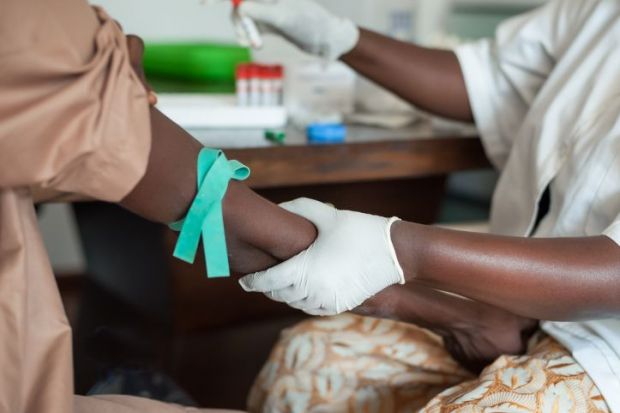Global university rankings can sometimes seem like a beauty parade: the super-rich institutions with their huge endowments and their superstar, superannuated professors tend to top the tables.
That is as it should be. When you are assessing institutions’ contribution to the global knowledge economy – based primarily on their research clout – it is understandable that money plays a crucial role. Those universities that are lucky enough to have the resources to develop state-of-the-art infrastructure, and that can pay top dollar to attract and retain the world’s top thinkers, will inevitably do well in the traditional rankings.
This is the tough reality of a highly competitive, unequal world and the global war for talent. But is it fair? The likes of Harvard and Stanford, Oxford and Cambridge are rightly lauded for their centuries of scientific breakthroughs, their accumulation of Nobel prizes and Fields medals, and for their outstanding educational programmes and famous alumni.
But there are many, many other, often far less vaunted universities quietly getting on with a gloriously diverse range of activities that also make the world a better place in less obvious and less celebrated ways.
Take the university in India that is helping to counter Maoist terrorism through outreach education programmes in jungle villages. And what about the less prestigious institution in the UK that has made a public commitment to ensure that it pays its female staff as much as its male employees, or the one that has taken a principled stand against the increasing scourge of job insecurity and casualised contracts, to offer employment stability?
How about the sub-Saharan university that is fuelling progress in health – not with a Nobel prize-worthy scientific breakthrough, but by providing a strong and steady supply of qualified nurses into the local community? Or the institution transforming the life chances of families by opening its doors to a wider range of applicants, from tougher backgrounds, than its neighbours admit?
And then there are those institutions that lack the prestige and wealth of a Stanford or an MIT but employ lesser-known scientists who make steady, incremental yet vital contributions to climate science, to developing sources of clean energy, and to tackling disease.
Such work is the daily routine of innumerable universities across the world – the global north and the global south. But it often goes unrecognised (or at least, under-recognised), and that means that it can sometimes also go under-incentivised and unrewarded, as politicians facing tough funding decisions fail to spot the huge social contributions that universities make, or perhaps recognise that there are few votes to be found in allocating the proper funding to universities.
Times Higher Education would like to help change this. We are always looking at how we can play the most positive role in supporting the development of universities of every type, across every continent, and how we can celebrate the diversity that is a great strength of the global higher education sector.
As the creator of the renowned THE World University Rankings, which have been shaping how university excellence is perceived and understood across the world since 2004, we are happy to disrupt our own model.
Our new THE University Impact Rankings will offer an alternative view of university excellence. Shaped around the United Nations’ Sustainable Development Goals, THE has undertaken its most ambitious and challenging global data project to date: gathering multiple datapoints on 11 of the SDGs from hundreds of universities globally, covering each institution’s stewardship of its own affairs (for example in managing resources), its “outreach” in society and also its research activities.
The early response to this pioneering initiative has been amazing. More than 500 universities across 75 countries in six continents have taken part in the initial data collection exercise, helping us to develop an unprecedented picture of the extraordinary impact that universities have across a huge range of activities.
We commend these pioneer institutions. They have not only taken a bold step into uncharted territory to demonstrate their dedication to delivering social impact and the SDGs, but have also shown a commitment to living these ideals as an institution, sharing masses of information on internal policies and procedures.
Max Lu, vice-chancellor of the University of Surrey, said in response to THE’s plans: “The new ranking will bring about more balance into the missions of universities. Well done to THE.”
Writing for the Brookings Institution thinktank, fellow Maysa Jalbout, chief executive of the Al Ghurair Foundation, described the new THE impact rankings as “a welcome new development” that would “elevate the public perception of the universities most committed to service to humanity”.
Writing in the Canadian magazine University Affairs, University of Toronto PhD candidate Edmund Adam said: “The university impact ranking will…fix governments’ gaze even further on how higher education can help to address the complex social, economic and environmental challenges ahead for their nations.
“This is a positive thing, partly because the SDGs have a strong relevance to higher education, and there is a strong interest in the UN SDGs by governments in most countries.”
At THE, we hope that the new ranking will not just give due recognition to the fantastic work that universities do for the good of society beyond traditional metrics of teaching and research, but also that it will shake up our very notion of what excellence in global higher education looks like.
Phil Baty is chief knowledge officer at Times Higher Education.
The THE University Impact Rankings will be launched at the THE Innovation and Impact Summit held in partnership with the Korea Advanced Institute of Science and Technology (KAIST) 2-4 April, 2019. Find more information about the programme and how to register.
Register to continue
Why register?
- Registration is free and only takes a moment
- Once registered, you can read 3 articles a month
- Sign up for our newsletter
Subscribe
Or subscribe for unlimited access to:
- Unlimited access to news, views, insights & reviews
- Digital editions
- Digital access to THE’s university and college rankings analysis
Already registered or a current subscriber? Login








